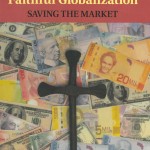It’s election week, and we’re inundated with polls, predictions, and predilections, so I’ll keep this short. While I was crunching NFSS data for an unrelated set of analyses, I stopped to dwell on an interesting survey question on perceived change in religiousness. We asked the 2,988 respondents:
Compared to today, were you more or less active in organized religion when you were growing up?
Given that we’re talking to 18-39-year-olds, and that young adulthood can often exhibit a notable decline in religiousness—something I’ve written about more extensively here and here—and that former US senator and presidential candidate Rick Santorum misinterpreted here, it’s of course not at all surprising to see that most respondents said they were less active in organized religion now than when they were growing up. Fully 53 percent said that, whereas 34 percent said they were “about the same” and 13 percent reported being “more active” than when they were younger. But what aggravates these numbers in either direction?
My first guess is that age and marriage are apt to boost religiosity in some who had been flagging, while sexual “deviance” (from religious expectations about it) can cause it to lag some. Keep in mind, of course, that the question begs an unknown answer about just how religious respondents were when they were “growing up,” so a “more active” or a “less active” response is connected to a level known to them, but not to us. So be it. It’s still illuminating: only 8 percent of the youngest group (18-23-year-olds) reported becoming more religiously active, compared with 13 and 18 percent of the older two groups (24-32 and 33-39-year-olds, respectively). Makes sense.
Both married and divorced respondents reported comparable levels of growing religiousness, at 18-19 percent, while 63 percent of cohabiters said they had become less religious.
The most dramatic shifts, however, appear around personal politics. Political affiliation—a one measure, 1-5 scale of just how politically conservative or liberal our respondents consider themselves—takes the cake for shifting the bar on perceived growth or decline in organized religious involvement. Only 23 percent of respondents who said they were “very conservative” politically reported being less active in organized religion today, while 31 percent said they were more active than as a youth. Keep in mind that’s compared with 53 and 13 percent of the total population, respectively.
It’s a linear association, too: 48 percent of just plain “conservative” respondents reported being less active religiously, compared with 52 percent of moderates, 62 percent of those who said they were “liberal” and 76 percent of those who self-identified as “very liberal.” That’s quite a span–from 23 percent (among the most conservative) to 76 percent (among the most liberal).
The Democrats truly are losing their religion. Or perhaps these are persons who lost their religion and then decided the Democratic Party seemed most in line with their sentiments. There is probably plenty of both types.
This is not new news, I know. See here. But it’s heartwarming and confirming to me to see the NFSS data continue to make rational sense in so many domains of research questions, even while critics remain convinced that I got the basic story wrong in the July Social Science Research article on the adult children of parents who’ve had same-sex relationships. (I didn’t.)
Happy voting…











